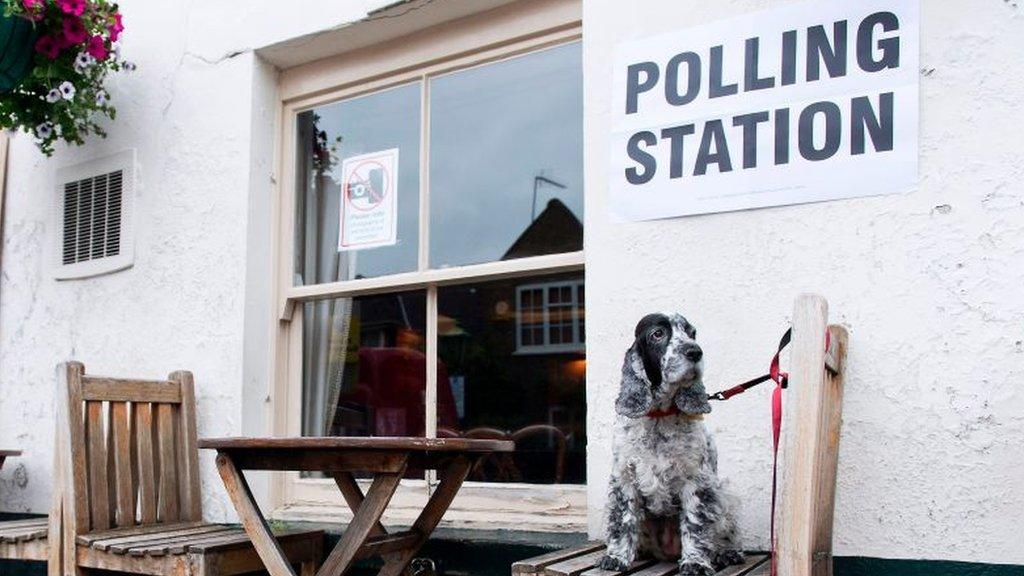Election 2019, Your Questions Answered: Education and tuition fees
- Published
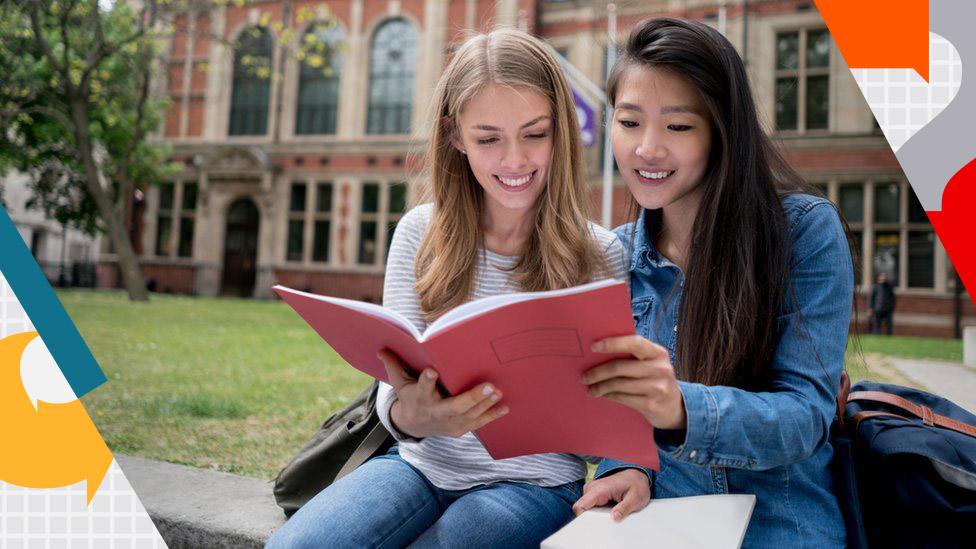
There are just over three weeks to go before the general election. What will the main parties offer voters on education?
Here are our answers to a selection of readers' questions on tuition fees, school funding and more.
If Labour cancel tuition fees for university students, what happens to fees owed by ex-graduates? - Bill Coombes, Wells-next-the-Sea
Universities in England can currently charge up to £9,250 a year in tuition fees,, external which can be paid for through a student loan. Recent figures indicate, external that the average debt among students who finished their courses in 2018 was £36,000.
The Labour Party has pledged to scrap tuition fees for university students in England as have the Green Party, external. The Brexit Party has said it will scrap interest charges on tuition fees.
Both the Conservatives and Liberal Democrats have yet to outline their plans. But none of the main parties has suggested that outstanding fees or loans should be refunded or cancelled.
Scottish students at universities in Scotland do not pay tuition fees. They receive bursaries and loans to pay living expenses. Students from other parts of the UK are charged tuition fees if they attend university in Scotland.
Students at Welsh universities are charged tuition fees. And Welsh students, wherever they study in the UK, can also receive financial assistance (with living costs) from the Welsh government.
Universities in Northern Ireland can charge up to £4,275 a year for students from Northern Ireland, but up to £9,250 for those from England, Scotland and Wales. Students from Northern Ireland can apply for student loans to go to university anywhere in the UK.
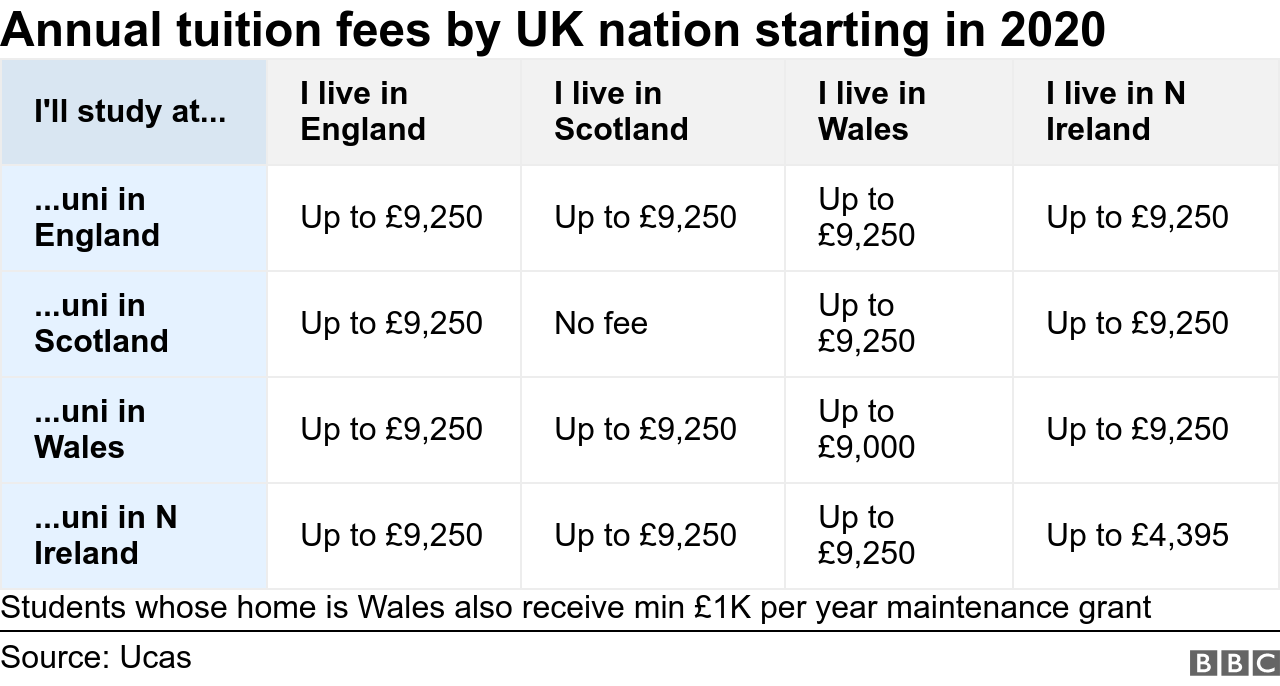
Following the publication of the report on tuition fees, would a future Conservative government cut the fees and when? - Karen Exley, York
A recent government-commissioned review of university tuition fees in England recommended they should be cut from £9,250 to £7,500.
But Prime Minister Boris Johnson has not yet confirmed whether he will go ahead with lowering fees.
The Tories claim that more money has been put into education. But has the amount per head increased since 2010? - Ken Spencer, London
Per-pupil school funding in England fell by 8% in real terms between 2009-10 and 2018-19. This is according to a study by the independent analysts, the Institute for Fiscal Studies (IFS).
This decrease in school budgets is a calculation that takes into account rising costs and inflation - and also an increase in the number of pupils.
So the headline amount of money might have increased in cash terms, but it had to stretch much further. So for schools it meant they had less to spend on each pupil.
In England, school spending per pupil has fallen from £6,537 in 2009 to £5,994 in the 2018 financial year. At the same time, the IFS says, external pupil numbers in English primary schools have increased by 17%. Average class sizes in secondary schools have risen from 20 to 22 pupils.
But before the general election was called, the Conservative government promised to reverse the cuts and increase school funding by £7.1bn after three years. In real terms, the IFS says this will be worth £4.3bn, which is enough to return funding to 2010 levels.

CONFUSED? Our simple election guide, external
POLICY GUIDE: Who should I vote for?, external
REGISTER: What you need to do to vote

Where do the main parties stand on private schools? - Ambrose Mui, Radstock
At Labour's annual conference there were commitments to bring private schools into the state sector.
This included calls for their assets to be "redistributed" and the introduction of limits on university places for privately-educated students.
But the only clear signal on what might make it into Labour's manifesto has been the plan to add VAT to private school fees, which are currently VAT-exempt. Labour leader Jeremy Corbyn has said that would pay for free school meals for primary school children.
So far, without manifestos published, the Liberal Democrats and Conservatives have still to show their intentions for private schools.
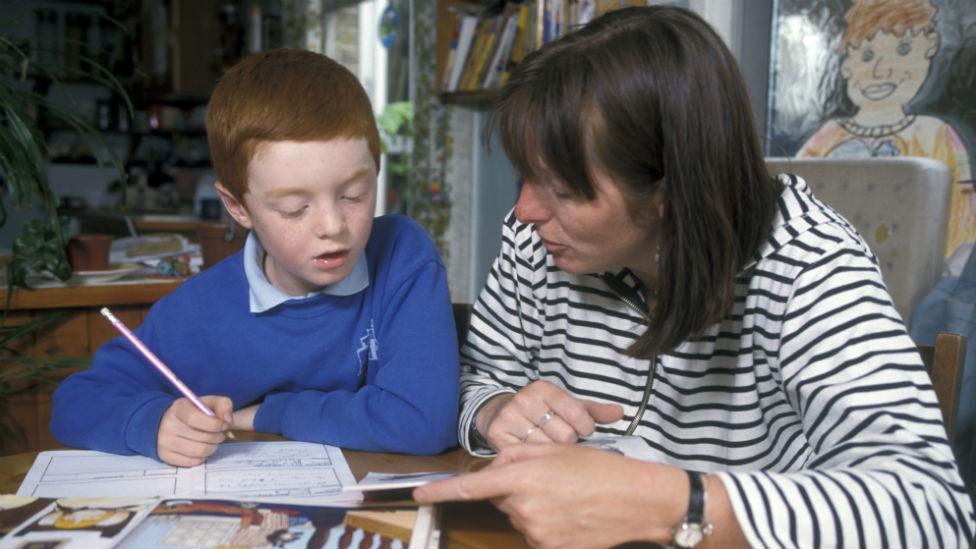
Until recently I home educated my son, through necessity. Why is there no funding for this? - Joscelyn, Market Weighton
Parents are responsible, external for ensuring their children are properly educated, if they are of "compulsory school age" in England - between five and 18.
The law is similar across Scotland, Wales and Northern Ireland - education is compulsory, but going to school is not.
Parents take on the full financial responsibility for teaching their child at home, according to charity Child Law Advice., external
Some local authorities offer support, like discounted admission to sports facilities. The government is also consulting on proposals that would require councils in England to provide more assistance, such as financial contributions towards exam fees.

Where do the parties stand on the Erasmus programme? - Kira Taylor, Cornwall
The Erasmus scheme is a programme funded by the European Union. It helps students study or work abroad as part of their degree.
In 2016-17, external, more than 16,500 UK students participated in overseas programmes through Erasmus. And almost 32,000 EU nationals came to the UK through the scheme.
The draft Brexit Withdrawal Agreement, negotiated by Boris Johnson, sets out exactly how the UK leaves the EU. It confirms that UK universities will continue to be able to participate in the current Erasmus programme until its end date in December 2020. But it's not clear what will happen afterwards.
If it wins the election, Labour wants to renegotiate Boris Johnson's Brexit deal and put it to another public vote. If that happens, the UK's continuing participation in Erasmus would depend on the outcome of this.
The Liberal Democrats say they will revoke Article 50, the law that ensures the UK leaves the EU. That would mean the UK stays in the Erasmus programme on a permanent basis.
Though it has yet to publish its manifesto, the Scottish National Party has previously said it would support the continuation of involvement in the Erasmus programme. The Green Party's manifesto says it will hold a "People's Vote" on Brexit and campaign to remain in the EU.
Meanwhile, the Brexit Party says it will tear up Boris Johnson's draft agreement and leave the EU and its organisations without a deal. This would make the UK's future in Erasmus uncertain.
However, some countries which are not in the EU - including Iceland, Norway and Serbia - also take part in it.
Will polling automatically force school closures to allow for ballots or will they be hosted somewhere else? - Macauley Moseley, Derby
Head teachers cannot refuse to allow their schools to be used as polling stations on election day in the UK.
Schools that are publicly funded can be used free of charge., external They must set aside a room to be used for voters to cast their ballots, including in academies and free schools.
Polling stations need to meet accessibility requirements. They also need to be in easy-to-find locations to ensure voters do not face any problems on the day.
Given that schools often meet these criteria, this makes them a popular choice with returning officers, who choose the venues in each constituency.

What are your questions about the general election? You can let us know by completing the form below.
In some cases your question will be published, displaying your name and location as you provide it, unless you state otherwise. Your contact details will never be published. Please ensure you have read the terms and conditions.
If you are reading this page and can't see the form you will need to visit the mobile version of the BBC website to submit your question or send them via email to YourQuestions@bbc.co.uk, external. Please include your name, age and location with any question you send in.
- Published7 November 2019
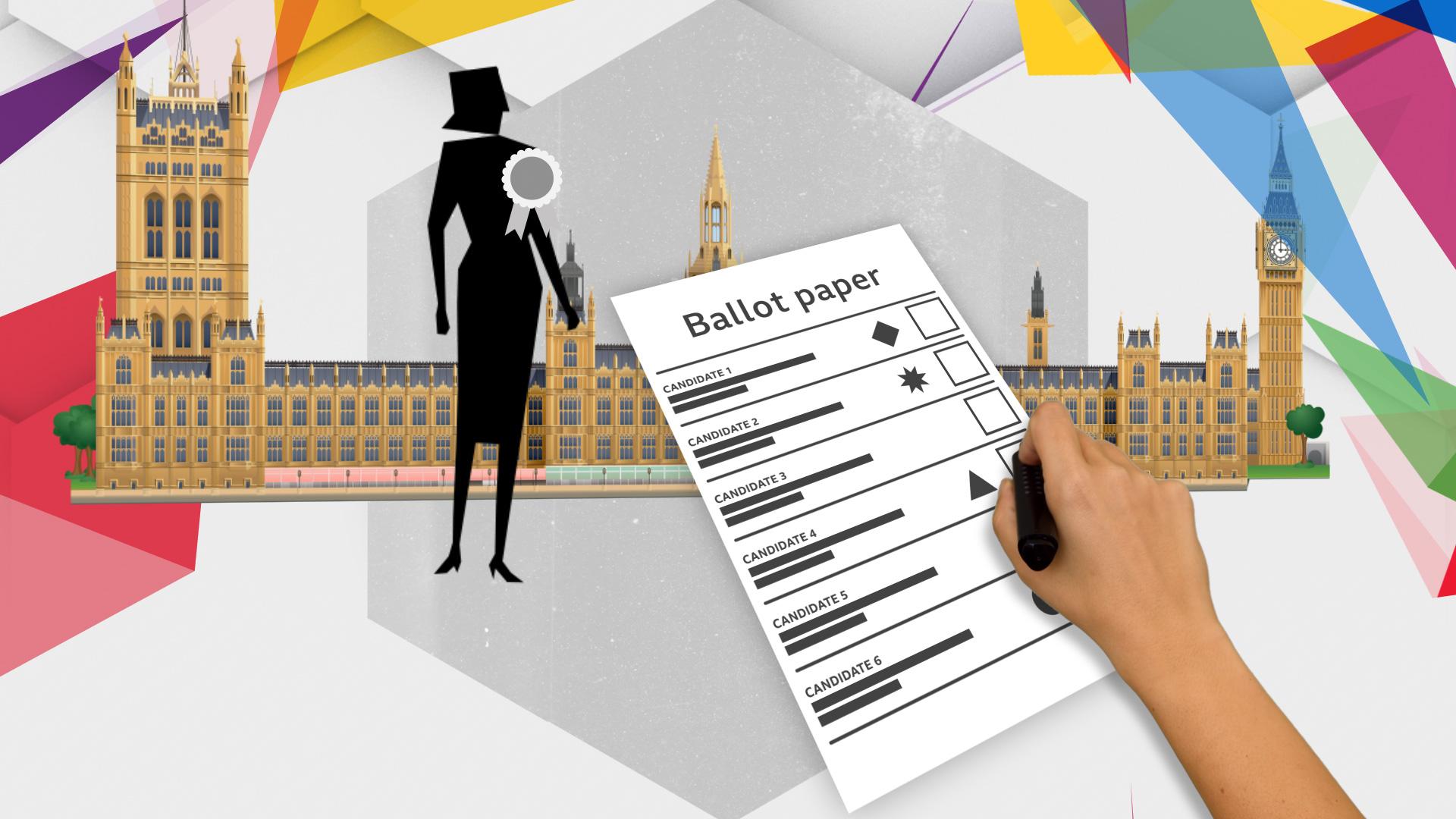
- Published6 November 2019
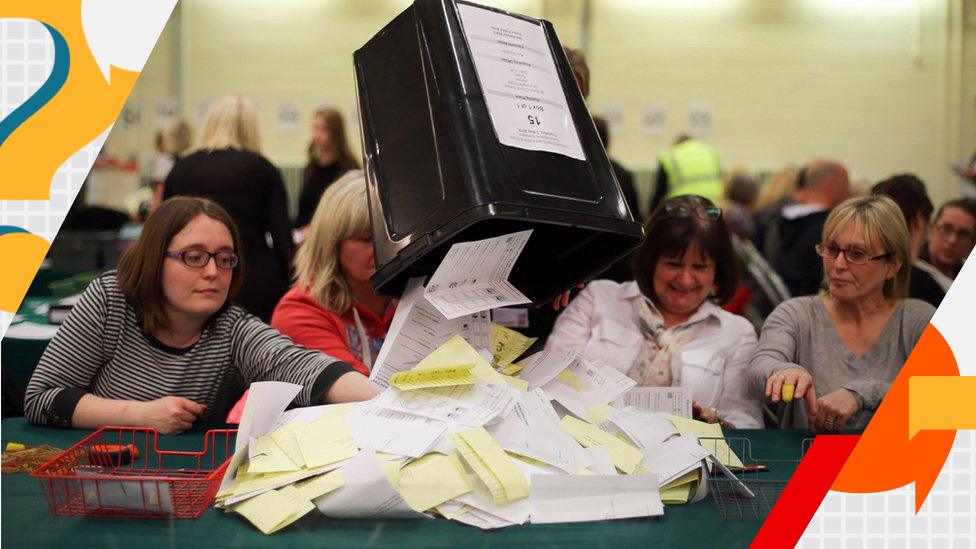
- Published6 December 2019
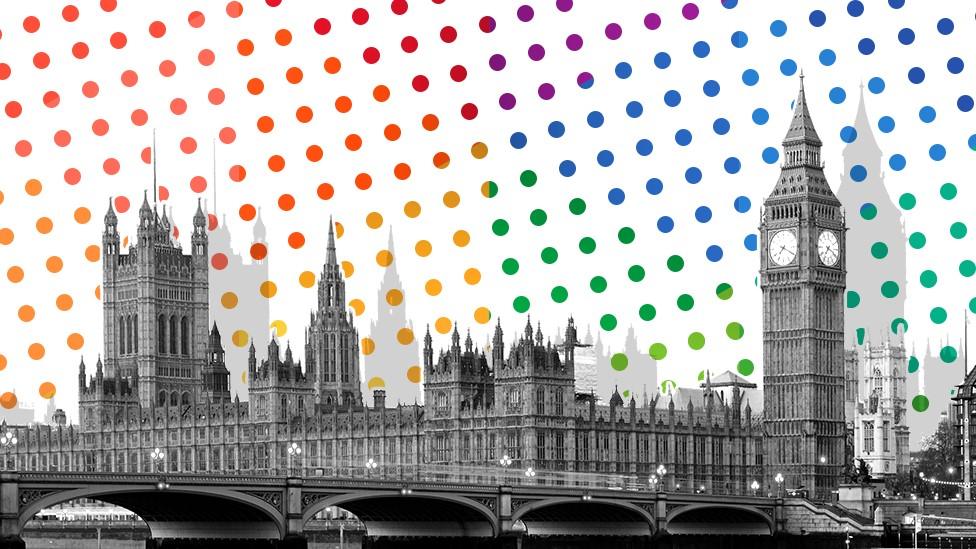
- Published30 October 2019
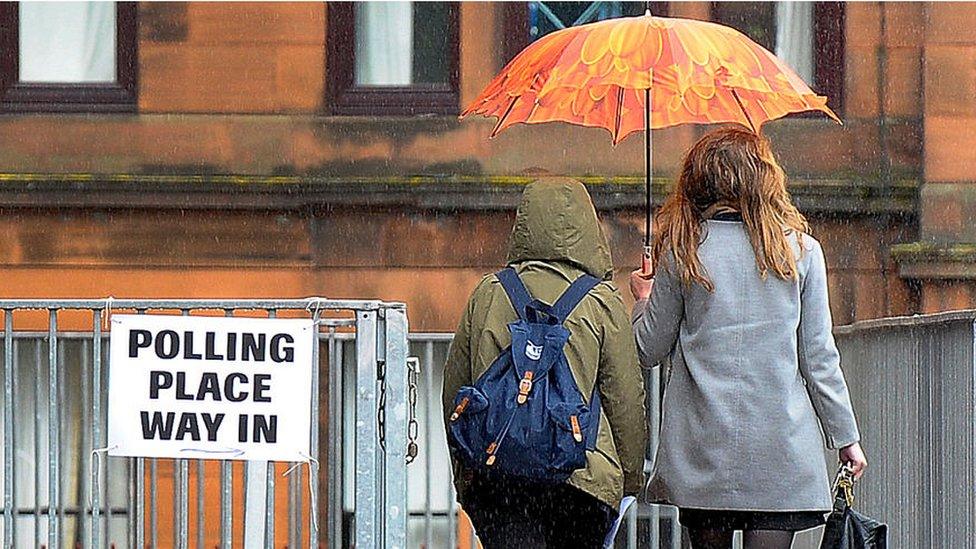
- Published11 December 2019

- Published13 November 2019
